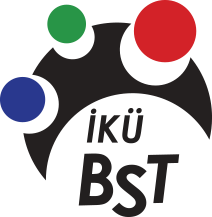Contact Information
| Rector | Prof. Dr. Fadime Üney Yüksektepe | 0212 498 47 02 | rektorluk@iku.edu.tr |
| General Secretary | Ender Rıza Ekici | 0212 498 47 10 | genelsekreterlik@iku.edu.tr |
Correspondence Address |
İstanbul Kültür Üniversitesi, Ataköy Yerleşkesi, Rektörlük, D100 Yan Yol, 34158 Bakırköy / İstanbul | ||
HISTORICAL DEVELOPMENT AND CURRENT SITUATION
Istanbul Kültür University (IKU), which was established by the Kültür College Education Foundation (KEV) in accordance with the Law No. 4281 adopted by the Turkish Grand National Assembly on July 9, 1997, provides a high quality higher education services with the awareness that it is possible for the Republic of Türkiye and the Turkish nation to achieve its unchangeable goal of "exceeding the level of contemporary civilization", with the awareness that it is possible for our youth to receive a qualified education.
In the 1997-1998 Academic Year, IKU started its activities in three faculties consisting of the Faculty of Arts and Sciences (Department of Mathematics-Computer), Faculty of Economics and Administrative Sciences (Department of Business Administration), Faculty of Engineering and Architecture (Departments of Civil Engineering and Computer Engineering) with 157 students and an academic staff of 32 people and Vocational Schools of Business Administration and Technical Sciences (Program of Business Administration and Computer Programming). IKU had its first associate degree graduates from Business Administration and Technical Sciences Vocational School in 1999, and its first undergraduate graduates (38 graduates) and first graduate graduates (10 graduates) in 2001. At the end of the 2021-2025 Academic Year, 887 graduates from associate degree programs, 1786 graduates from undergraduate programs, 300 graduates from master's programs and 15 graduates from doctoral programs, totalling 2973 graduates. The total number of graduates of IKU between 1999 and 2022 has reached to 40903.


Our Mission
The mission of Istanbul Kültür University (IKU) is to train individuals who can think multi-dimensionally and critically, based on professional competence and creativity and to contribute to society by increasing scientific, artistic and cultural activities.
Our Vision
The vision of Istanbul Kültür University (IKU) is being a university that shapes the future with innovative activities that serve social progress, lifelong learning and science.
OUR MORALS
- Being committed to Atatürk's principles.
- Being contemporary and universal.
- Being people-oriented and respecting human rights.
- Having social responsibility awareness.
- Giving importance to the development and abilities of individuals.
- Respecting nature and having environmental awareness.
- Adherence to the principles of universal knowledge, scientific thought, ethics, common sense and participatory management.
- Being versatile and productive.
- Being student-centered in education.
- Being process and result oriented.
- Seeking continuous improvement and innovation.
- Being respectful to thoughts and beliefs.
- Being innovative, creative, sharing, reliable, transparent and accountable.
OUR OBJECTIVES
Objective 1: With student-centered education programs that support lifelong learning, competent instructors and academic support; graduating students with competencies that can contribute to the country's global goals and increasing internationalization
Obejctive 2: Continuing integrated research and development activities for the problems of industry and society, with national and international stakeholders, by using the knowledge and research potential of the university.
Objective 3: Enabling conscious individuals to be raised on issues that will benefit society and carrying out sensitive and practices in environmental and social areas.
Objective 4: Ensuring the accountability and sustainability of the service quality by strengthening the relations of the university with its internal and external stakeholders.


